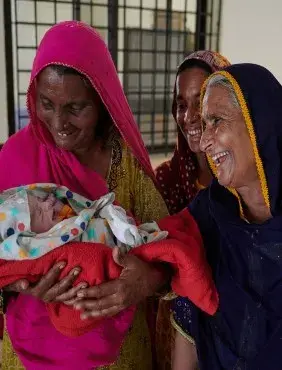The vision of the new country programme is to accelerate progress towards the achievement of the three transformative results of reducing preventable maternal deaths, unmet need for family planning and gender-based violence and harmful practices, including child marriage. In realizing this vision, the focus of the 10th country programme will be on addressing discriminatory gender and social norms and disparities that restrict access to high-quality and inclusive sexual and reproductive health services, particularly on those most left behind, as well as scaling up advocacy for young people’s education, employment, engagement and health to harness the demographic dividend.
The proposed programme, which was developed in consultation with the Government, United Nations organizations, civil society and other key stakeholders, is aligned to government initiatives related to youth development, social services and social protection for the most vulnerable groups as well as the ICPD Programme of Action, the 2030 Agenda for Sustainable Development, the UNFPA Strategic Plan, 2022-2025, and the UNSDCF, 2023-2027.
Within the context of the Decade of Action, the programme will foster urgency around national commitments to accelerate action towards the achievement of SDGs 3 and 5, in line with the ICPD Programme of Action, and promoting gender equality and women’s empowerment, with particular attention to vulnerable and marginalized groups.
Building on the lessons learned and in line with the overall shift from funding to financing, the programme will continue advocacy for domestic financing, expand the partnership base, generate programmatic evidence and create and scale up effective innovative models to accelerate action towards the transformative results, with a focus on lagging districts.
In line with the ICPD Programme of Action and the voluntary ICPD+25 and Family Planning 2030 national commitments, the country programme will seek to integrate sexual and reproductive health services in the national universal health coverage package, prioritizing national ownership and investing in national and subnational institutions and accountability systems. The country programme will support reviews of national policy, legislation and action plans affecting sexual and reproductive health, gender equality, child marriage, youth and women’s empowerment to identify implementation bottlenecks. Capitalizing on the recent policy and legislative reforms in promoting gender equality and addressing gender-based violence, institutional capacities and systems for the implementation of policy and legal frameworks will be strengthened.
UNFPA will contribute to human capital development through in-school and out-of-school life skills-based education, youth leadership for innovation and investments in youth-led initiatives to fulfil young people’s rights, ensure their participation and deliver sexual and reproductive health information and education.


